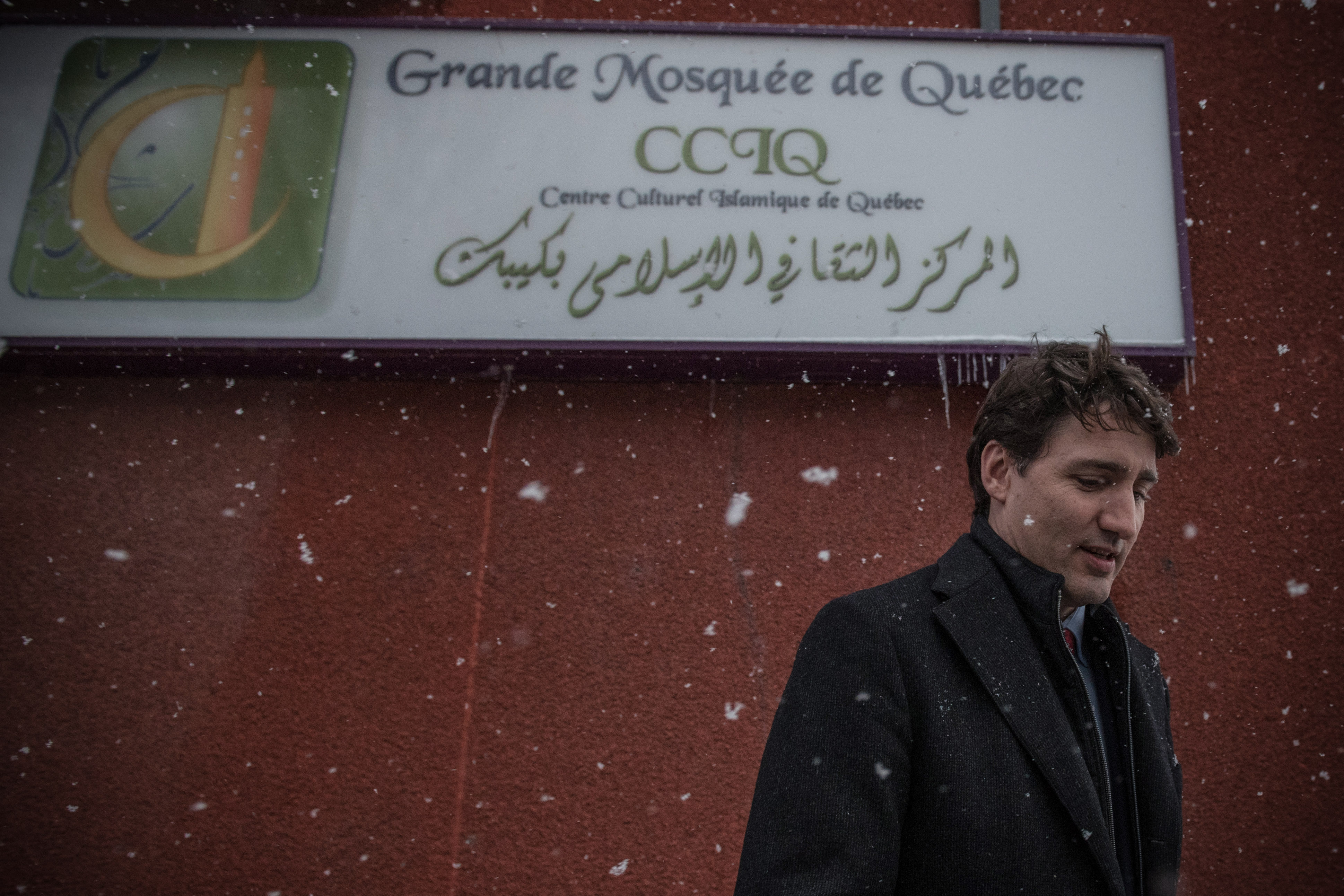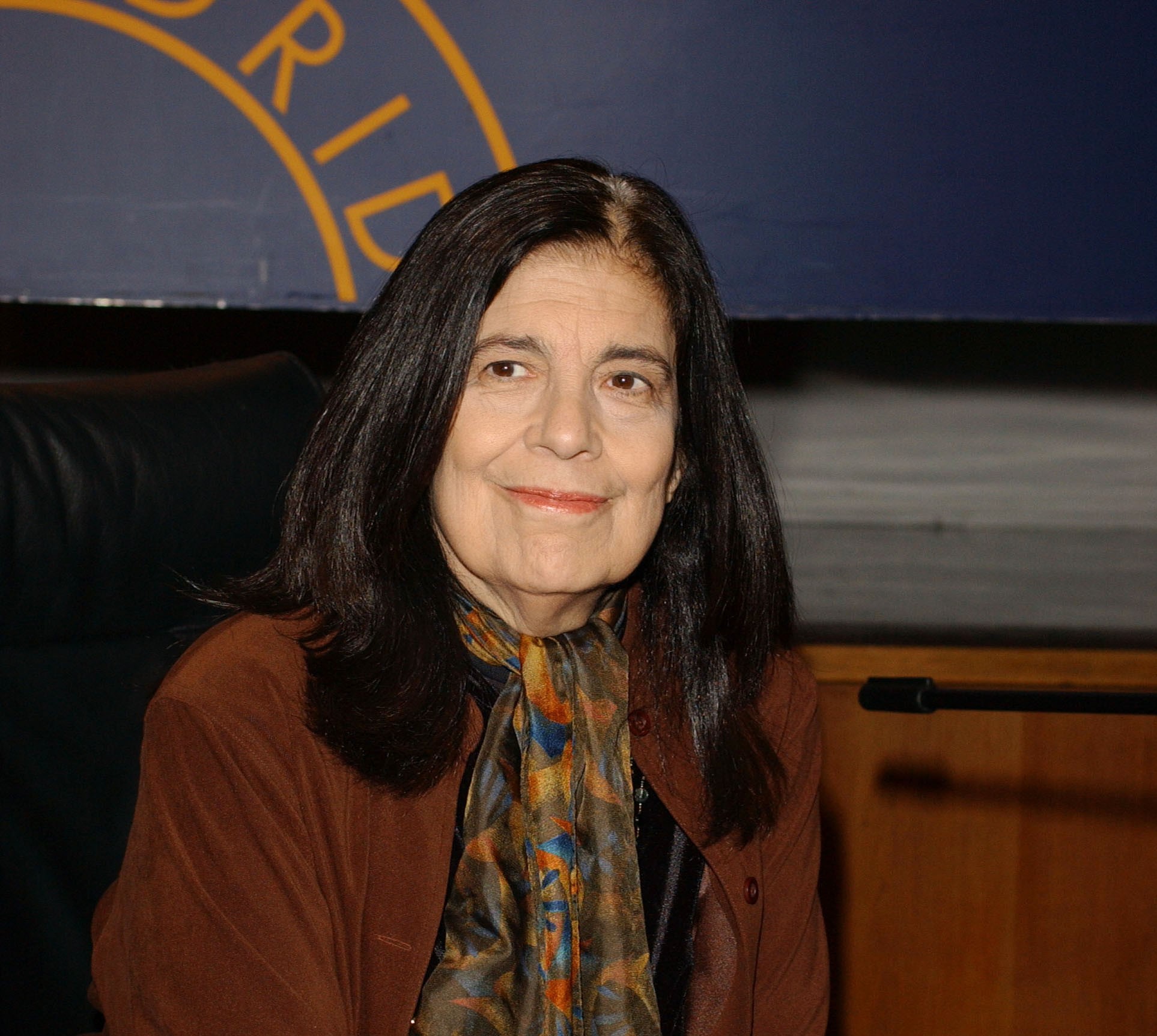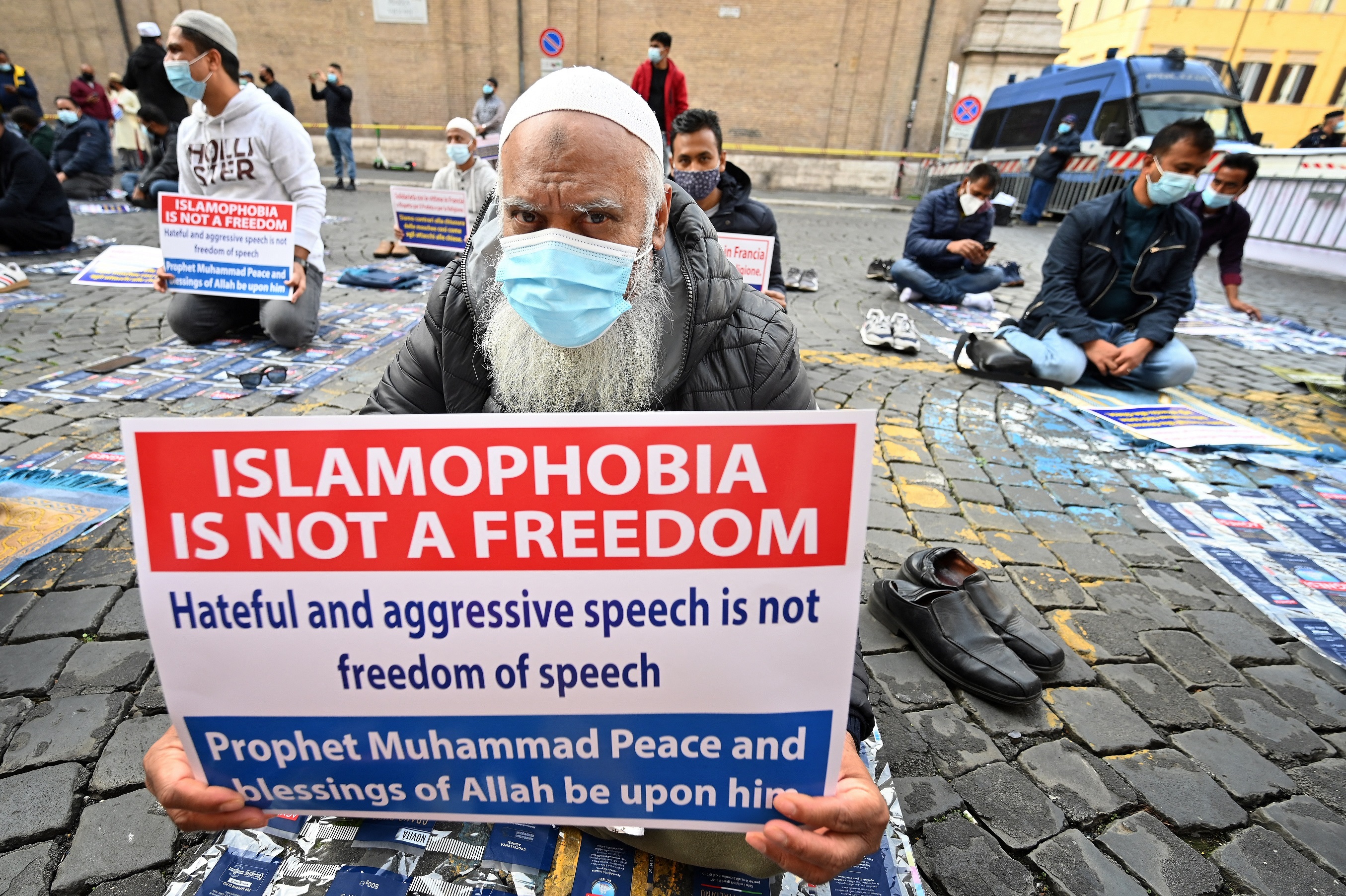The events of September 11, 2001 exacerbated anti-Muslim sentiment in the Western media, but Islamophobia had been around for a long time beforehand.
It was a Tuesday morning in my hometown of Toronto and my mom had just dropped me off at school. I was in second grade and had just celebrated my seventh birthday the day before. The drop off was just like any other morning. I couldn’t have known that when I was picked up later that day, the world I lived in would have changed forever.
At 8:45am that seemingly regular Tuesday morning, an American Airlines Boeing plane crashed into the North Tower of the World Trade Center. CNN first announced: “This just in, you are looking at a very disturbing live shot there. That is the World Trade Center and we have unconfirmed reports that a plane crashed into one of the towers of the World Trade Center.” A few minutes later, a second plane crashed into the South Tower. Smoke and debris were everywhere.
That morning changed the lives of American Muslims forever. Aymann Ismail, who today works as a journalist himself, was 11 years old that day when his Islamic private school rushed to evacuate them.
“They told us that we were going to be evacuated and I thought that was weird,” he remembers now. “They instructed us not to go to the front door, but to use the side door to get into the buses right away.”
Ismail soon realised that his life as a Muslim American had completely changed that day. “It wasn’t until we were on the buses that we saw people throwing stones and protesting outside of the mosque and the school and I was like ‘what’s going on?’”
As Ismail was trying to comprehend what he was witnessing, newsrooms were scrambling to cover the attack. Reporters were struggling to track down leads as to who the perpetrators may have been. It wasn’t long before it was announced that Muslim extremists carried out a terrorist attack.
‘We didn’t expect the US media to get it right - and they didn’t’
From that moment on, the portrayal of Muslims in the Western media changed dramatically. Within the public there was a heightened fear of "violence" that could be committed by Muslims. As the media explored and analysed the 9/11 attacks, they perpetuated an idea that Islam as a religion may be responsible. The narrative that depicts Islam as a religion which perpetuates violence was quickly adopted throughout Western media.
Evelyn Alsultany, Associate Professor at the University of Southern California and author of the book, “Arabs and Muslims in the media: Race and Representation after 9/11”, recalls a time when news media were running stories about white Americans converting to Islam and later becoming terrorists.
She remembers the story of a young white man named John Walker Lindh who had grown up in a fairly liberal town and community in California. After converting to Islam, he went to Afghanistan to fight against the Northern Alliance. Considered an "enemy combatant" by the US, he was detained in November 2001. People were shocked and asked how something like this could happen. And they came up with a simple explanation - that “Islam is the reason why someone can become violent”, says Alsultany.
Ismail, who grew up in a post-9/11 world, found himself driven to become a journalist to help provide a more balanced representation of Muslims and the Middle East in the Western media.
“My Muslim community’s expectations were already low. We didn’t expect the US media to get it right and they didn’t get it right,” he says. “There were news stories about the “Jihadis next door” and fearmongering about domestic terrorism and secret cells, and they were also trying to explain the back stories of the actual people who hijacked the planes. But, in doing so, they were fearmongering about how ‘you don’t know about that Muslim in your class’.”
Using ‘Islam’ and ‘terrorism’ interchangeably
These days, Ismail is a staff writer at Slate Magazine, based in New York. In 2017, he produced a video series called “Who’s Afraid of Aymann Ismail?” Confronting popular fears and stereotypes about Muslims that he believes perpetuate throughout Western media and culture.
When the US government began its “War on Terror” campaign, the word “terrorism” was immediately associated with Islam and Muslims.
A 2012 study by Suad Joseph and Benjamin D’Harlingue, which looked at the way the Wall Street Journal represented Muslims and Islam, found that the words “terrorism” and “Islam” were used interchangeably.
Furthermore, the use of the word “Arab” or “Muslim” would frequently be followed soon after by some account of terrorism.
Another study, published last year by Renmar Cristobal Freis-Beattie at the University of New Hampshire, called “Fear and Loathing in post-9/11 America: Public Perceptions of Terrorism as Shaped by News Media and the politics of Fear”, arrived at the same conclusion: “The 'terrorist' label is embedded with radicalised meaning. In effect, terrorism is treated interchangeably with Muslim violence. If fear of terrorism is reflective of fear of Muslims then among suspected perpetrators of terrorist violence, individuals who are Muslim, Middle Eastern or associated with radical Islam are more likely to be framed or labelled as terrorists by news media.”
There were news stories about the 'Jihadis next door' - they were fearmongering about how 'you don’t know about that Muslim in your class’ - Aymann Ismail, Slate Magazine
Amira Elghawaby, a journalist and human rights advocate, was working at CBC Radio when 9/11 happened. She recalls the constant negative coverage of Muslims following 9/11. “Over the years, the coverage just got worse,” she says now. “It became part of the media discourse to write about Muslims in a very negative way and that continued.”
She gives the example of the coverage of a 2016 visit that Justin Trudeau made to a mosque during Eid to pay his respects during one of the holiest celebrations in Islam. Some media outlets, like the Toronto Sun, referred to the mosque as having "terror connections". A columnist for the National Post wrote: “If Canada’s prime minister were a woman, she wouldn’t have been permitted where Justin Trudeau stood earlier this week: on the ground floor of a gender-segregated Ottawa mosque for Eid al-Adha celebrations.”
This was entirely wrong. “The contention that women couldn’t speak anywhere in the mosque was refuted a few days later by a female Liberal MP who shared her own experience of appearing at the front of that very mosque on various occasions,” says Elghawaby.
Aysha Khan, a freelance reporter, also noticed the lack of accurate reporting about Muslims and Islam - whether it’s to do with the Sunni/Shia divide, the divisions between Muslims and Jews or about the Middle East being a region that’s filled with wars. “These sorts of tropes have definitely appeared and are factually inaccurate and impact the way readers and viewers see Muslims both in America and globally.” Says Khan.

Toeing the American line
In the aftermath of 9/11 and the War on Terror, a new era of Middle East invasions began. In 2003, US forces invaded Iraq vowing to destroy Iraq’s “Weapons of Mass Destruction”.
Deepa Kumar, Professor of Journalism and Media Studies at Rutgers School of Communication and Information in New Jersey, calls this time in US journalism “the wave of patriotism”.
She notes: “The famed CBS anchor, Dan Rather, exemplified this when he said on the Letterman show that George Bush was the president and that he was willing to line up wherever the president wanted him to.” She adds that those who offered an analysis of 9/11 that differed from this standard were quickly punished. As a result, journalists self-censored and did not dare ask difficult questions, she says.
Kumar gives the example of the late Susan Sontag, who wrote a short article about 9/11 in the New Yorker just days after the attacks, which caused such an uproar that she was denounced by both liberal and conservative media and pundits alike. In her piece, she wrote: “Where is the acknowledgment that this was not a “cowardly” attack on “civilization” or “liberty” or “humanity” or “the free world” but an attack on the world’s self-proclaimed superpower, undertaken as a consequence of specific American alliances and actions? How many citizens are aware of the ongoing American bombing of Iraq?”
Following 9/11, many young Muslim and Arab people actively chose to go into journalism because they wanted to change the narrative about Muslims
Haroon Siddiqui, Editorial Page Editor at the Toronto Star, recounts the same trend in Canada. He laments his “greatest personal disappointment of my colleagues who became mere PR (public relations) agents for the army and for the invasion”.
But the negative portrayals of Muslims did not begin with 9/11, Siddiqui and others say. “Politicians and public opinion did not all come to the conclusion that Muslims are terrorists only after 9/11. The negative portrayals of Muslims were exacerbated by the events of 9/11. It’s a through-line that starts with the 1967 Six Day War, Israel launched an attack on Egypt, Syria, Jordan and Iraq,” says Alsultany. “We start seeing the portrayal of Palestinians as terrorists and Israelis defending democracy.”
Rooted in history
In 1973, the Arab embargo and Arab states protests over the US’s support of Israel, brought the image of Arabs being greedy and threatening the American economy.
In 1979, the Iran hostage crisis led the narrative which framed Iranians as being violent and a threat to the US.
In 1996 - still well before 9/11 - the Oklahoma City bombing occurred and the media made the assumption that the perpetrator of this attack was from the Middle East.
“And so, by the time we get to 9/11, we have already associated the Middle East with violence and terrorism that threaten democracy,” says Alsultany.
Twenty years after 9/11, we continue to see the same coverage of Muslims and of terrorism.
This was demonstrated by a study, published in 2015, which examined New York Times (NYT) articles published between 1990 and 2014. The study concluded that the NYT associated Muslims with the collective responsibility for terrorism.
In 2018, a University of Alabama study found that US media coverage of acts of violence increased by 357 percent when these acts are committed by Muslims.
Recent news coverage about ISIS is also instructive. Elghawaby reflects that when the coverage of ISIS started to dominate the news, news media referred to the group as “the Islamic State”. She remembers writing an op-ed about how we should be using the term Da’ish to describe ISIS because that is the name they use in Arabic - but to no avail. “There was insistence on the use of the term Islamic State. It serves ISIS but it stigmatises our entire community,” she says.

When stories about Muslims seem always to be about terrorism
Growing up Muslim in a post-9/11 world has been difficult. Farah Eltohamy was only one year old when 9/11 happened, so she grew up surrounded by this type of coverage of Muslims.
Eltohamy, who is now now a fellow at the Texas Tribune, recalls that whenever she sees stories about Muslims, Islam or the Middle East; it always seems to be about terrorism. “I knew that “we” were the threat, knew that “we” were the outsiders that no one wanted. And it's a very tough thing to grow up with,” says Eltohamy.
From my own observation as a Muslim journalist working in Canada, there have been improvements in the way Muslim stories have been covered over the years, however. There are more stories of Muslims that go beyond the terrorism and national security beat. This is partly due to the advent of social media, because many Muslims have a large social media presence and there are many more Arab and Muslim journalists now.
Because of the way Muslims were covered following 9/11, many young Muslim and Arab people - including me - actively chose to go into journalism because we wanted to change the narrative about Muslims.
The story of Aysha Khan is fairly typical. Currently a freelance journalist, she tells me that it was because of newsrooms’ failure to cover Muslim communities with the complexity and nuance that they deserve, that she decided to go into journalism so she could report on Muslim communities herself, with the hope to change the narrative.
For many of us living in Muslim communities in the West, the enduring legacy of the media coverage of 9/11 will be its normalisation of Islamophobia. This has in effect demonised and dehumanised Muslims and trivialised their lives and their rights.
Countries in the Middle East have been invaded, drone strikes continue, Muslim men remain held in Guantanamo Bay without trial, the New York Police Deparment has surveilled many Muslims, and the FBI has sent out informants pretending to convert into Islam to spy on Muslims.
How can we do better?
With the withdrawal of troops from Afghanistan, Muslim journalists are once again asking themselves how to help a more accurate narrative prevail in mainstream media. The question is what could we have done better to cover Muslims, the Middle East, Islam and Arabs following 9/11 and how can we do better in the future?
Here is what some Muslim journalists and other experts have to say about reporting on these issues:
Rowaida Abdelaziz, Reporter, Huffington Post: Muslims are not a monolith, make sure you have diverse sources, even within the Muslim community, talking to women, talking to Black Muslims, Arab Muslims, South Asian Muslims, East Asian Muslims etc. Are you incorporating Muslims in day-to-day stories? Is there a bigger picture here and what is the proper context for this particular story? Is it a story that ties back to the war on terrorism or ties back to slavery in the US? Or does it tie back to a particular policy that affects the community? The larger “ism”, the policy and institutional power all of that has to be thought about when you are writing your stories about Muslim Americans.
Alia Malek, Director of International Reporting, Newmark Graduate School of Journalism: You could ask the communities that you cover, that’s one of the things that I teach all my students. Understand [the perspective of] the people you are interviewing. Ask questions like: “How do you feel about the way you have been portrayed?” Assume people have opinions about this. Understand the history of a community and what the media has done.
Be aware of your position. Are you an American going to the Middle East? Remember that an Iraqi might want to come to the US and report on Americans, but they’re not able to get in. Think about that and understand what that means [when it comes to the] way that person is speaking to you.
Write about Muslims the way you would write about any of your fellow citizens. I have a test for Western media - would you write this now about the LGBT community? If you wouldn’t, then you have your answer - Haroon Siddiqui, Toronto Star
Aymann Ismail, Staff Writer, Slate Magazine: You can’t report on a community without talking to the community and people are much more accessible than you think. So if you want to cover the Muslim community in Queens, for example, just make a list of five different mosques in that area, call them and say hey, I work for such-and-such organisation, do you have anyone in mind that could answer my questions about xyz.
Never write or say: “Muslims say this” or “Muslims are upset with AOC” or “Muslims report on Trump because of xyz” or “Muslims report on Biden because of xyz”. Muslims are the most diverse religious group in the world and the most religious group in America and that’s across socioeconomic lines and cultural lines and every kind of status you can imagine. You can’t just interview one Arab Muslim and say “I talked to Muslims”.
Haroon Siddiqui, Editorial Page Editor, Toronto Star: Write about Muslims the way you would write about any of your fellow citizens. I have a test for Western media - would you write this now about the LGBT community? If you wouldn’t, then you have your answer.
Amira Elghawaby, journalist and human rights advocate: Do not to make assumptions. Understand that there is diversity in the Muslim community, there’s nuance. There are differences in every story, every person’s experience and every aspect that a journalist is looking to cover. Be very careful of language, and think about not stigmatising and using generalising language. Be specific and to really try to include more community voices.
Farah Eltohamy, Fellow, Texas Tribune: Stop stripping away our humanity because all these communities for so long have been dehumanised and we need to be seen as people. One way to do this is to tell our stories as they are as fairly and as accurately as possible.
Haneen Al-Hassoun, freelance journalist: The mistake is looking at Muslims as a monolith and almost seeking to find that one voice or one opinion or one portrayal of Muslims. I would encourage journalists and newsrooms to stop looking at Muslims as a monolith because we are very different. There are so many different parts of Islam and so many different types of Muslims and so I think that idea that there is only one type of Muslim is very reductionist and isn’t really productive.
Aysha Khan, freelance journalist: When journalists write about religion, they should go to an expert on the matter - a qualified academic or a religious leader. Don’t just turn to a random Muslim or a random Jew or a random Christian on the street and say: “Explain your religion, explain why this conflict is happening in the Middle East.” These are complex subjects - you can’t just ask people out on the street to comment on them as if they are the authorities.







































